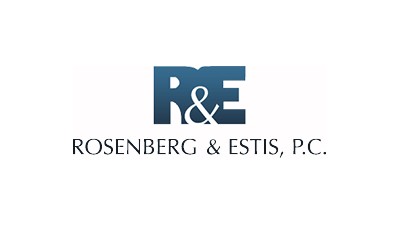Baby Boomers Could Be Behind A Rise In 1031 Exchanges

As more baby boomers approach retirement age, many with long-standing real estate investments are using 1031 exchanges to acquire management-free assets like triple net properties. Others are making the transition to set up trusts and reliable income streams for children who might not want to take on the responsibility of property ownership.
For Rosenberg & Estis Of Counsel and Transactional Department member Patrick R. Tierney, increased interest among his clients made last year one of the most active he has seen for 1031 exchanges.
Like-kind exchanges made the news last summer when Republicans unveiled a tax reform plan in which the law was noticeably absent. The policy allows investors to defer tax from any capital gains earned through the sale of a property by using that money to purchase another asset of "like kind."
Approximately 30% of annual real estate transaction volume comes from 1031 exchanges. Eliminating the program could create a chilling effect on real estate investment.
“You have a lot of people, at least with my clients, who want to get these 1031 exchanges done now so they don’t have to worry about any of the uncertainty,” Tierney said.
Low cap rates also have Tierney’s clients looking to purchase properties outside of New York City. For Class-A apartment buildings in the city, cap rates are at 2.8%. By comparison, the cap rate for Class-A apartment buildings in Tampa, Florida, is 7.9%. While Florida remains a popular choice, Tierney has also seen New York real estate owners acquire 1031 exchange properties in New Mexico, Pennsylvania, Rhode Island and Illinois, among others.

Triple net assets are a popular option for 1031 exchanges. Properties with credit tenants like fast-food chains or national banks provide investors with steady income over multiple years, and the tenant assumes responsibility for property taxes, insurance and maintenance. For baby boomers, who have a collective $2.3 trillion in spending power, triple net properties offer stable assets to grow and protect their wealth.
“The size of the baby boomer population and the concentration of wealth in the baby boomer population is somewhat of a unique phenomenon, and that may last another five or 10 years,” Tierney said. “It seems like there are more people in that generation who are utilizing 1031s, particularly into triple net properties, than anything that I have experienced in the past.”
The youngest baby boomers will reach 65 years old by 2030. Families who have held property in New York for a long time may no longer have younger relatives willing to take up management of a building when it comes time to retire. Triple net properties eliminate that responsibility.
Whether baby boomers nationally are driving increased interest in 1031 exchanges is up for debate. But among Tierney’s clients, the older generation makes up the majority of property owners looking to prepare for the future.
“Either I am just really unique and my experience is with the older generation, or there is something to the fact that the older generation is starting to think more seriously about their succession strategies and how they want to be managing these properties,” Tierney said.
To learn more about this Bisnow content partner, click here.

